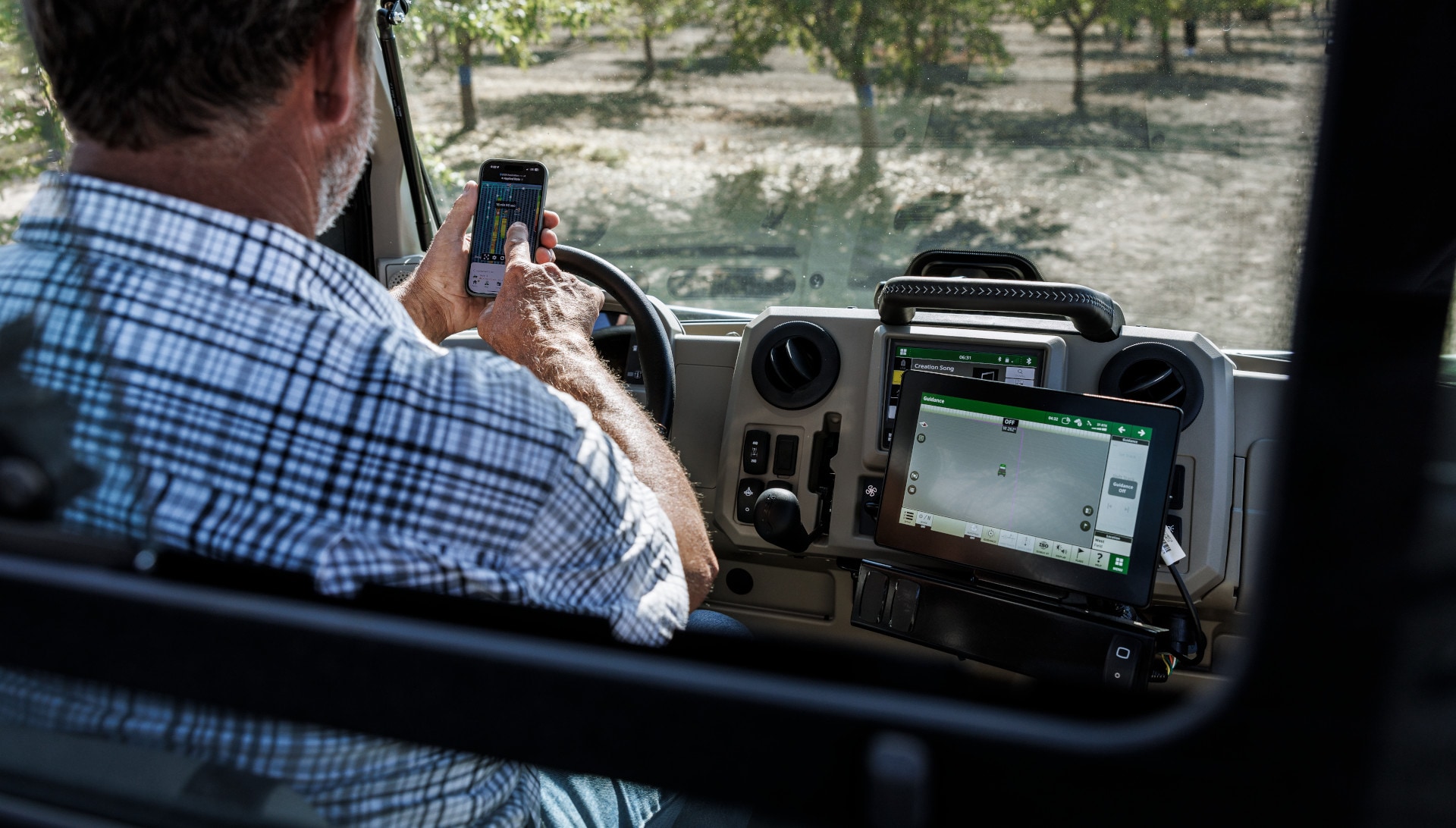From No Cellphone to Autonomous Tractors
How Russell Maichel Became a Leader in Tech-Driven Orchard Farming
Back in the 1980s, Russell Maichel was busy growing almonds, walnuts, and pistachios without even a cellphone in sight. Fast forward to today, and his orchard is buzzing with a fully autonomous tractor cruising through the rows, spraying pesticides and fertilizers to protect his trees.
For the past 35 years, Russell has poured his heart and soul into working orchards in Northern California. He manages olive, prune, and almond trees across 3,500 acres in the Woodland area. Russell and his staff grow an impressive ten million pounds of nuts every year.
Caring for an Orchard
Orchard farming is very different than growing corn, soybeans, or other grains. In orchards, large nut trees can grow up to 30 feet tall and require at least 12 sprayings throughout the growing season. To care for them, tractors pull air blast sprayers that help create turbulence within the tree canopy while applying a variety of products, ensuring each tree is fully protected from pests, disease, and environmental stress like sunburn or heat. The tractors move at a very slow speed, around 2.5mph, and it’s usually very hot, dusty, dark, and loud.
Russell has spent years behind the wheel of these tractors, but the sheer volume of work and the challenge of finding reliable help have been constant hurdles. “I struggle with finding qualified employees,” Russell admits.
Autonomy Will Change Everything

To help combat his labor shortages, Russell teamed up with a couple John Deere engineers to test an autonomous tractor in his fields.
“Never in my life did I expect an autonomous tractor to exist,” Russell says. “You could physically see where this tractor is on an app, watch its production, start it, stop it, see it in the field, driving down the row doing its job is exciting!”
By leveraging GPS technology, LiDAR, and advanced sensors, these autonomous machines operate with incredible precision, reducing waste, improving efficiency, and avoiding obstacles. For farmers like Maichel, this means:
- Ability to operate 24/7, maximizing productivity
- Reduced risk of not having labor to do the job when it needs to be done
- Increased accuracy and job quality
- Minimized soil compaction due to optimized field navigation
“Autonomy will change how we do things in farming – strengthen what we have and get operations done in the field on a routine basis,” Russell explains. “Twenty years ago, I would not have believed it. It’s going to change everything!"